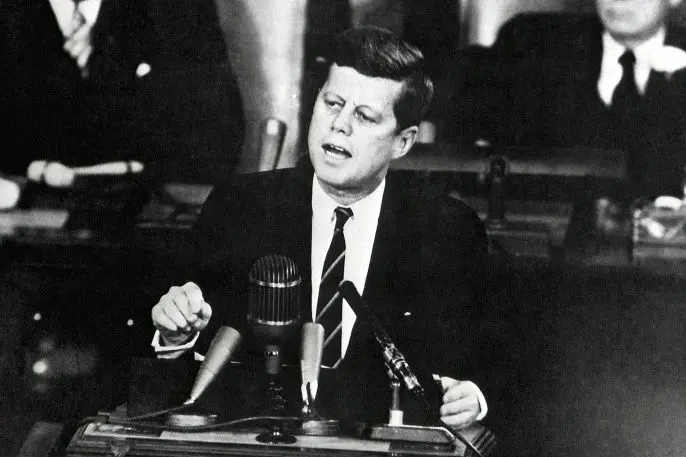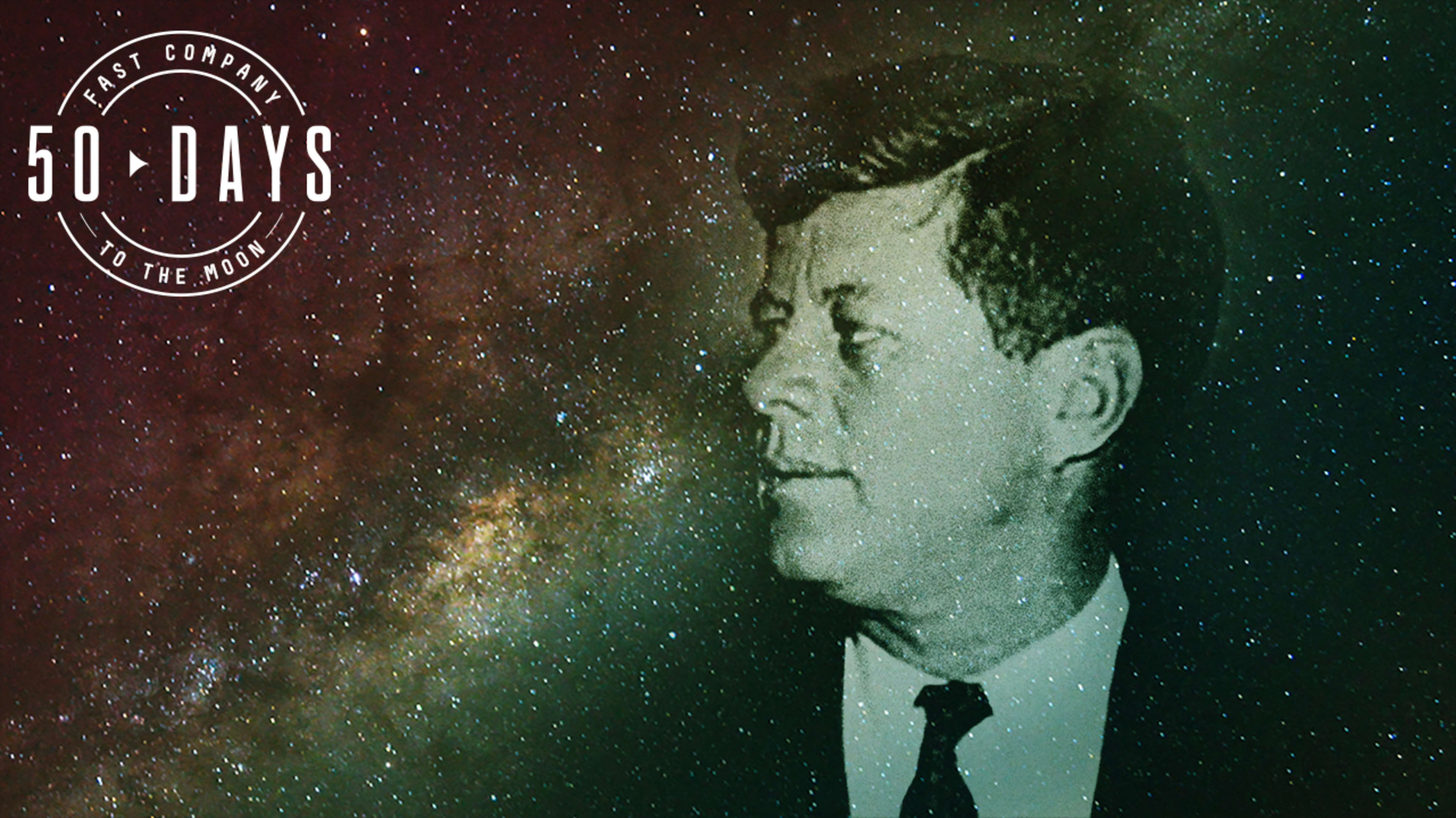This is the second in an exclusive series of 50 articles, one published each day until July 20, exploring the 50th anniversary of the first-ever Moon landing. You can check out 50 Days to the Moon here every day.
History’s most important speech about space almost didn’t happen.
On Thursday, May 25, 1961, at 12:30 p.m., President John F. Kennedy took the podium in the U.S. House of Representatives, addressing the full House and Senate to issue his famous call that “this nation should commit itself to achieving the goal, before this decade is out, of landing a man on the Moon and returning him safely to the Earth.”
That sentence changed the course of human space exploration, the shape of the Cold War, and Americans’ own sense of what they could accomplish. The speech, which White House aides called “a second State of the Union,” was carried live on all the nation’s TV and radio broadcast networks.
But the fact that Congress and the American people heard Kennedy rally them to race for the Moon was the result of a last-minute change of heart. Until less than a day before he gave that speech, Kennedy had no intention of actually delivering it. He was just going to send it to Congress as a printed text, a “message” to Congress, to be read aloud by clerks, to any members who wanted to sit and listen.
The day before the speech–Wednesday–that morning’s New York Times reported: “The president considered, then decided against, delivering the message in person to a joint session of the Congress.”
But Wednesday afternoon, just 21 hours before he would deliver the speech, Kennedy changed his mind, in part at the urging of Vice President Lyndon Johnson, who thought the message would have much more power if delivered by Kennedy in person.
That set off a scramble. Both the House and Senate had to pass resolutions Wednesday afternoon to invite the president to address them the next day, TV and radio coverage had to be arranged, and the president had to rehearse what would turn out to be a long, and long-remembered, speech.
At that moment, four months into his presidency, Kennedy had previously suffered two worldwide humiliations. On April 12, the Russians had launched the first person into space, and just a week later, U.S.-backed forces invading Cuba at the Bay of Pigs had been routed and then captured by the army of Fidel Castro, resulting in what was widely regarded as a military debacle, a Cold War defeat, and a moment of political amateurism and embarrassment.
Thursday morning’s Washington Post, in its front-page news story, said Kennedy hoped delivering the speech personally would spark “a revival of spirit in Washington. Ever since the Cuban invasion fiasco, the bloom has been off the bright rose of the early days of the new administration. Some said, in fact, that the president’s purpose is to re-create some of the spirit of his January 30 State of the Union speech, one of the most widely praised of such addresses in many a year.”

What’s mostly lost to history is that it wasn’t about space. It was a speech designed to reinvigorate the Cold War, “the worldwide struggle” against the Soviet Union. The first 31 minutes contained 21 specific proposals for winning “a battle for minds and souls as well as lives and territory” against the Russians, none of which were about space.
Only in the final minutes did Kennedy talk about the challenge and the importance of space travel, and it was the most eloquent, dramatic, and persuasive part of the address. Space, Kennedy said, is “a great new American enterprise” that could “hold the key to our future on Earth.” It would not just be American astronauts landing on the Moon, Kennedy asserted. “It will be an entire nation. For all of us must work to put [them] there.” Going to the Moon required money and it required urgency, embracing the unknown, and what Kennedy memorably called “the full speed of freedom.”
It worked. Friday’s newspapers blazoned Kennedy’s call to go to the Moon across their front pages, as if that was all the speech had been about. Congress immediately lined up to provide the billions in funding Kennedy had requested. NASA’s staff and contractors would double within a year. Four years later, NASA and its contractors would be nine times the size they’d been when Kennedy took office.
It’s hard to imagine, in fact, that the race to the Moon would have been undertaken with anything like that urgency and political support if Kennedy hadn’t made the speech in person. A “message” to Congress certainly wouldn’t have inspired banner headlines from coast to coast.
In the annals of presidential decision making, an apparently trivial choice–to deliver a speech in person rather than simply send Congress the text of that discourse, along with some proposed legislation–that a change of heart on a Wednesday afternoon in May 1961 reshaped the history of human exploration.

For each of the next 50 days, we’ll be posting a new story from Fishman–one you’ve likely never heard before–about the first effort to get to the Moon that illuminates both the historical effort and the current ones. New posts will appear here daily as well as be distributed via Fast Company’s social media. (Follow along at #50DaysToTheMoon).
Recognize your brand's excellence by applying to this year's Brands That Matters Awards before the early-rate deadline, May 3.
